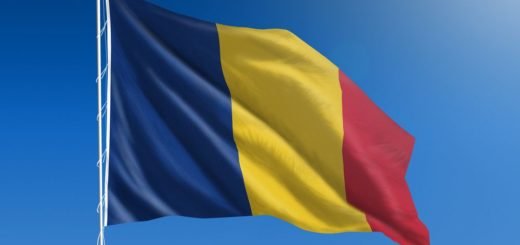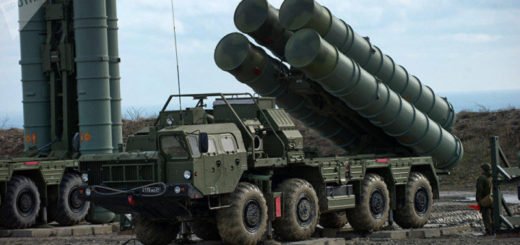Russia-Belarus Integration: Distant Dream of Union State

For more than a year, Russia-Belarus integration has regularly made headlines. In late 2018, Russia suggested that Belarus would have to accept deeper bilateral integration if it wanted to benefit from greater economic cooperation. The sides engaged in intense talks throughout 2019, hoping to reach an agreement by December. However, they not only failed to sign any significant new deals but began 2020 without renewing their oil and gas contracts. As a result, Russia stopped its periodic deliveries of crude oil and gas to Belarus, escalating tension between the sides.
The Kootneeti’s Editor to the Middle East & Eastern Europe Amit Sinha discusses the different aspects of the Russia-Belarus integration with Valdai Discussion Club expert, Artyom Kureev. Here are the excerpts:
Russia & Belarus signed The Treaty on Equal Rights of Citizens in 1998, making it a Supranational Union State. First of all, what is the concept of the Supranational Union State? How the ongoing talks for the integration process is different from it?
Artyom Kureev: The concept of a supranational union state involves the transformation of national states and the formation of a supranational decision-making level with which the state level shares power. Accordingly, a supranational union state means not only economic but also political integration. Political integration forms a strategy for the development of integration as a whole and includes many basic elements, one of which is, for example, common citizenship. Now Russia and Belarus do not pose tasks directly related to political integration. Rather, the parties discuss various aspects of a social and political nature that ensure the implementation of the tasks of economic integration.
Thus, political aspects are considered as applied to the economy. In addition, both states are not ready to lose a significant share of their sovereignty. This explains why the integration process in the Union State proceeds somewhat in slow motion. This is due to differences in the economic policies of states and their economic potential. At the same time, the parties have developed common goals for economic integration.

Does this integration process mean Russian control of Belarusian policies? Whether its Defence or Foreign policies too will be controlled by Russia?
Artyom Kureev: The formation of the Union State is based on an equal approach, in which Russia in every possible way avoids obvious and open pressure on the Belarusian side. Although, of course, based on the size, potential, and economic importance, Russia plays a significant role in the development of integration. Nevertheless, according to the statutory documents of the Union State, decisions are made on an equal footing, as the Union State Parliament has created filters that impede bias in decision-making in favour of one side or another, and the emphasis is on developing a compromise. At the same time, the parties managed to create a truly effective military partnership; regular military exercises are being held on the western borders. Belarus, in the face of its president, realizes that it is an outpost of Russia on the western borders, which allows it to affirm parity in decision-making with Russia.
In December Russian Economics Minister Maxim Oreshkin said that two sides had failed to resolve key differences over oil and gas. Do you think any future scopes to resolve these issues?
Artyom Kureev: Of course, Belarus is interested in an acceptable price for gas and oil, being a partner of Russia. However, at present, the emphasis is on solving such issues within the framework of a larger integration association, which includes Belarus and Russia, the Eurasian Economic Union. Obviously, painful issues of this kind are resolved sooner and more often not through existing political mechanisms, but thanks to the personal contact of the presidents of the countries.
However, countries have shown a willingness to dialogue in this area. So, the parties nevertheless reached some agreement on the issue of compensating Belarus for losses for the Russian tax manoeuvre in the oil industry. Since Belarus did not pay duties not only for oil received but also oil products from it to the Russian budget, for the Russian government this meant a hidden subsidy to the Belarusian economy. Belarus does not agree with this approach. This and other issues will be resolved more systematically only after the unification of tax legislation.
What can be the estimated time for this reunion? As of the December meeting between President Vladimir Putin and Belarusian President Lukashenka, things don’t seem to go smooth between the two?
Artyom Kureev: The fact that the parties have disagreements does not prove the conflict situation in the Union State, but proves the development of the integration process since only in its course such questions arise. Therefore, the presence of disputes leads to their discussion, the elaboration of various scenarios for their solution and the removal of tension in bilateral dialogue. The presence of controversial issues does not lead to the collapse of the Union State.
What is the 31st roadmap of Russia? What are the proposed changes to Minsk under it?
Artyom Kureev: The 31st roadmap addresses the political dimensions of integration. It proposes the formation of supranational institutions that will symbolize the deep integration between Russia and Belarus. Belarus takes a somewhat controversial position on these aspects. On the one hand, the leadership of Belarus speaks of the importance of supranational bodies precisely from the point of view of promoting integration itself, and on the other hand, speaks of the inadmissibility of losing sovereignty, as Belarus builds a multi-vector foreign policy and seeks to demonstrate in every possible way its independence in making foreign policy decisions.
But at present, only questions are being worked out on deepening integration in the legal field in order to facilitate the interaction of societies and economic circles. The issue of the formation of supranational bodies remains controversial, but it is not at the same time completely excluded in the future. Russia, for its part, will avoid political pressure on Belarus to resolve this issue.

There is a section of Belarusians who feel this proposal as an assault on their integrity and it will dissolve their Belarusian identity to a Russian one. What are your comments on it?
Artyom Kureev: The issue of identity is crucial for any modern society. However, from the point of view of identity, Belarusians and Russians are very close. In Belarus, with the exception of radical nationalists, who do not have a significant impact on the mentality of Belarusian citizens, it is widely believed that Belarusian identity is at least related to Russian identity.
In addition, Belarus recognizes a common history and culture with Russia, which eliminates the threat of a clash of identities. In Belarus, a comfortable environment has been created for the self-identification of citizens, and at the same time, cultural monuments and the Belarusian language are supported, which allows the preservation of Belarusian identification markers. In this context, Belarusian identity is not in danger. Therefore, the speeches of Belarusian nationalists about the threat of the disappearance of the Belarusian identity can be considered as political provocations, which, however, do not have broad public support.
Artyom Kureev is a Valdai Discussion Club expert. The Valdai Discussion Club is a Moscow-based think tank and discussion forum


















